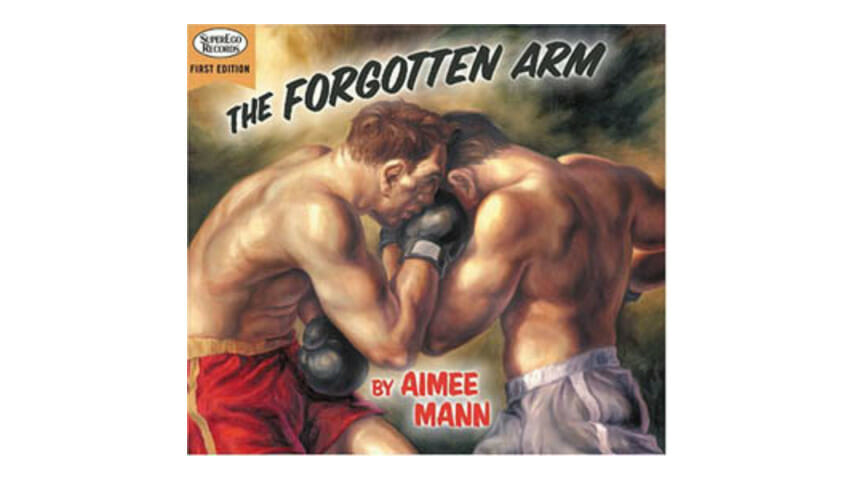Aimee Mann – The Forgotten Arm

Aimee Mann’s almost singular devotion to themes of addiction and dysfunction would’ve become an artistic liability for most songwriters about three albums ago. It’s hard to think of another tunesmith working today who hits the same motifs and emotional notes with more consistency. From 1993’s Whatever to 2002’s Lost in Space, Mann’s first-person protagonists invariably find themselves on the raw end of a doomed romance, ducking out under a smokescreen of half-mumbled mea culpas and a cloud of fatalism that makes Richard Lewis look like Zig Ziglar.
Relationships are, for Mann, both irresistible and toxic. No image captures this notion better than Lost in Space’s cover art, a row of high-tension power lines framed against the night sky like human silhouettes, their outstretched arms draped in wires that bind them together yet carry a lethal power. As Mann sings on 2000’s Bachelor #2, “One act of kindness could be deathly.” The female voice behind “Highway On Sunday 51” from Lost in Space is perhaps the archetypal Mann-equin, a hopeless, nakedly self-conscious figure constructed solely for the sake of modeling Mann’s reductionist view of romance: “The monkey knows how you’ll react / Creating want by holding back … I propped my window up and then / I turned my back to lure you in … Let me be your heroin.” Given her obsession with the human psyche’s remarkable complexity, the conclusion Mann reaches time and again is morose and simplistic: all of us are too screwed up to make meaningful connections with other human beings.
With her latest release, The Forgotten Arm, Mann finally seems to have discovered a format that gives her characters room to breathe: the concept album. According to Mann, The Forgotten Arm follows the travails of a Virginia carnival worker and a down-and-out boxer who meet in Richmond not long before he’s sent to Vietnam. Inevitably the boxer returns with a drug addiction and the carnival worker spends most of the album contemplating the relationship’s fiery tailspin, trying to muster the courage to eject. Though the scenario is a bit too familiar, Mann has time over the course of the record to develop nuance and believability. This freedom is a blessing and a curse: while the emotional payoff of the album proves more satisfying than anything she’s done so far, the individual tracks don’t stand alone as well. But as anyone who’s followed Mann’s toils in the record industry can tell you, she probably isn’t all that concerned with crafting a Billboard Heatseeker at this point. It may turn out that Mann’s best record is also the least radio friendly.
-

-

-

-

-

-

-

-

-

-

-

-

-

-

-

-

-

-

-

-

-

-

-

-

-

-

-

-

-

-

-

-

-

-

-

-

-

-

-

-








































